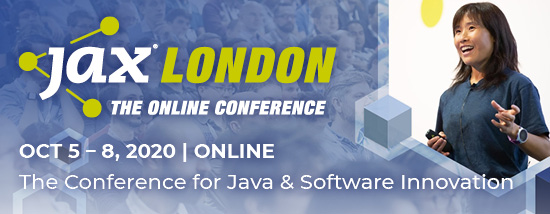A research study by The National Center for Women & Information Technology showed that “gender diversity has specific benefits in technology settings,” which could explain why tech companies have started to invest in initiatives that aim to boost the number of female applicants, recruit them in a more effective way, retain them for longer, and give them the opportunity to advance. But is it enough?
Four years ago, we launched a diversity series aimed at bringing the most inspirational and powerful women in the tech scene to your attention. Today, we’d like you to meet Barbara Nelson, Vice President of Applications at InfluxData.
Today’s Woman in Tech: Barbara Nelson, Vice President of Applications at InfluxData
 Barbara Nelson has vast experience leading globally distributed engineering teams that design, develop, deploy and support cloud-based products and services. As head of the applications team, she helps deliver the user interface and e-commerce platform for InfluxData’s cloud service. Her team is also responsible for the development of the Telegraf product and community.
Barbara Nelson has vast experience leading globally distributed engineering teams that design, develop, deploy and support cloud-based products and services. As head of the applications team, she helps deliver the user interface and e-commerce platform for InfluxData’s cloud service. Her team is also responsible for the development of the Telegraf product and community.
Nelson joined InfluxData in October 2019 and has led the applications engineering teams since. Prior to InfluxData, Nelson led engineering at several companies, including as a Principal Architect at eBay, and CTO/VP Engineering at iPass and Cirrent.
When did you become interested in technology?
I have to thank my mother for this. When I was in high school, I really didn’t have a clear idea of what career path I should take. My mother was a high school guidance counselor, and she arranged for me to take a bunch of aptitude tests. I was strong in math, and logic, so the aptitude tests recommended computer science. I had never seen a computer, and really didn’t know what computer science entailed, but I trusted my mother’s intuition and applied to study computer science at University College Dublin, Ireland. I absolutely loved it, and as they say, the rest is history.
I wasn’t really interested in technology per se, and my daughters still give me a hard time over how slow I am to adopt new technologies, but I loved the clear thinking and analytical approach to problem-solving that software development requires. So, I guess my love was more for the software development process than the specific products it produced.
How did you end up in your career path? What obstacles did you have to overcome?
I was really lucky, from a timing perspective. At the time that I graduated from UCD, Ireland was actively encouraging foreign companies to invest in Ireland, with very generous tax incentives for companies that set up offices in Ireland. For my first job after graduation, I was hired – along with nine other new graduates – by a company based in California. We were brought out to California for nine months of training, then we went back to Ireland to set up a new R&D center. It was a tremendous opportunity, and enabled me to build my leadership skills, in addition to my technical skills, as we were the first team hired, and the most senior folks in the Irish R&D center. From there, every job that I got was as a result of a direct referral from someone I had worked with, so I am a really strong believer in the power of personal connections.
It can be really hard to distinguish yourself from all the other applicants for a job, so having a personal connection can make all the difference. It certainly did for me. That means that every day that you come to work, you are making an impression on those around you, that may make all the difference when you are looking for your next job. You never know who is going to be in the right place at the right time to recommend you for that next great opportunity.
You never know who is going to be in the right place at the right time to recommend you for that next great opportunity.
Did you receive support from your family and friends? Do you have a role model?
Absolutely. To be honest, my parents didn’t really understand the details of my job, but they were extremely supportive. When I decided to move to California to be closer to the hub of software development, they backed me 100%, even though it meant they would see me less frequently. After I got married and had children, my husband and I made the decision that one of us should be a stay-at-home parent for our daughters. We were fortunate that we could afford this. My husband quit his job, and took over the day-to-day management of our home. That was a huge factor in me being able to be successful in my career. If I had to travel for business – and I often did – I didn’t have to worry about who would cover for me at home. If I had to work long hours, it didn’t disrupt the family. I am hugely appreciative of the sacrifice he made, because quite honestly, I don’t think I would have made as much progress in my career without it.
I don’t have a specific role model. There are people I have worked with over the years that I admire and I model my behavior after theirs. There are also people that I have worked with, that I am determined not to model their behavior. There are so many ways to make the right decisions for a business while also doing the right thing for employees. I’ve seen others do this really well, so I follow their lead.
Did someone ever try to stop you from learning and advancing in your professional life?
Not directly, but it did happen indirectly. I had been at one company for quite a few years, and I knew more about our current system and could be relied on to fix it faster than anyone else. An opportunity came up to lead the design of our next-generation system, but when my name was suggested, my manager said he didn’t want me to work on it because I was too valuable maintaining the current system. A colleague let me know that I would be unable to advance professionally in that company, as I was too good at maintaining the existing system. The only way for me to grow was to leave the company.
This experience has made me a lot more mindful about career growth for the people who work for me. I don’t want anyone feeling that they need to leave the company to grow, so even if it is inconvenient for us to move them to a new role, if it makes sense for them, I deal with the inconvenience.
A day in Barbara’s life
I am the Vice President of Applications at InfluxData, the creator of the leading time series database, InfluxDB. I lead the engineering teams building the user interface and the e-commerce platform for our Cloud service. I also have a team that is responsible for the development and community support for our open source Telegraf project.
My typical workday is Zoom, Zoom and more Zoom. I spend a lot of my day meeting with my managers, and my peers, figuring out what features we need to build next, how the team is doing, and doing whatever needs to be done to facilitate progress. I’m also a communication-conduit, taking the technical details of whatever we are working on, and abstracting them to the level needed by other teams at Influxdata.
As a 100% remote company, I need to be more intentional about developing relationships, as I can’t rely on just talking to folks in the company kitchen, so I also spend a lot of time in skip-level 1:1 meetings. It can be time-consuming but the payback is well worth it, as it leads to a more close-knit team.
What are you most proud of in your career?
Being a role model. Showing people that you can be successful as a woman in this industry, while also enjoying the work that you do. I work hard and love that my work has been recognized and valued. I love mentoring other women because sometimes all it takes is a few words of encouragement for someone to take that next step, or achieve that next goal.
Be confident, and look for opportunities that sound interesting and fit your skill set — even if they aren’t an exact match.
Why aren’t there more women in tech?
I think there are many reasons. The industry has a reputation that you have to match a certain stereotype to fit in. Many women look at those stereotypes and say, that’s not me. They see it in high school, they see it in college, and they see it in the workforce. I’ve seen it with my own daughters, who did not follow me into software development, even though they saw firsthand how good a life it gave us.
We need to do more to make women feel like they belong. Women suffer more from imposter syndrome than men do, and it is exacerbated by being in an environment where you look and feel different from everyone else in the room. That’s why organizations like Girls Who Code are so important, so that women can develop tech skills in an environment where they do fit in, and build up their confidence.
Could you name a few challenges (or obstacles) women in tech face?
One of the challenges that I see for women is confidence (or lack thereof). In the tech industry, we expect people to speak up, and stand up for themselves. If you’re not very confident, you can get lost. I’ve seen it so many times, where a female engineer won’t speak up when they have more information on an issue than their male counterparts. I’ve seen it in resumes and during interviews where female engineers barely highlight their achievements. Unfortunately, we are not yet in a world where the shy, quiet engineer can be as successful as their more vocal counterparts, so at least for now, women need to be prepared to speak up and advocate for themselves. If you are waiting for someone else to advocate for you, unfortunately the industry moves too fast, and people aren’t always perceptive enough to notice if you are being overlooked.
Would our world be different if more women worked in STEM?
Absolutely. We all do better in a diverse environment, whether it’s diversity of thought, diversity of background, or diversity of experience. We make better products that suit a wider group of people, if we have more points of view during the development process. I have seen teams where it felt like every engineer on the team was a clone of the next engineer, and you really notice the difference. They all had the same blind spots. They all assumed the product would be used in the same way, and then they all were surprised when we ran into issues if someone used the product in an unexpected way.
The discussion about diversity is gaining momentum. How long will it take to see results from the current debate?
We are already seeing results as there is more attention being paid to the hiring process to build more diverse teams. There have been enough studies done to validate that building a diverse team, whether it is an engineering team or the company board of directors, is worth the investment. The question now is how do we do that. In the past, it felt almost accidental if you happened to have a diverse team, whereas now it is very intentional. We have early positive results, but we do have a lot more to do to get to the point where it just happens by default and does not need to be so intentional.
What advice (and tips) would you give to women who want a tech career?
There are tons of opportunities in the tech industry, but they can be hard to find. You need to be prepared to step out of your comfort zone to advocate for yourself. Once you do that, the rewards can be immense. The work is varied, and the industry is so large that there are many different opportunities to get involved, and many different roles that need to be filled. Even if you have a non-traditional background, do not assume that you can’t move into this industry.
Be confident, and look for opportunities that sound interesting and fit your skill set — even if they aren’t an exact match. Then push hard to get the attention of the people that are hiring. They are looking for diverse candidates, and you just need to persuade them that you are the right fit.
More Women in Tech:
- Women in Tech: Jen Langdon, Director of Engineering, Cloudflare
- Women in Tech: Greta Fest, Frontend Software Engineer, Experience Technology, Publicis Sapient
- Women in Tech: Viktoryia Verasava, TypeScript Developer at McMakler
- Women in Tech: Anke Sperger, internal sales representative at Axis Communications GmbH
- Women in Tech: Aviva Peisach, R&D manager of the Wix Identity company
For even more Women in Tech, click here
The post Women in Tech: “We all do better in a diverse environment” appeared first on JAXenter.
Source : JAXenter




















